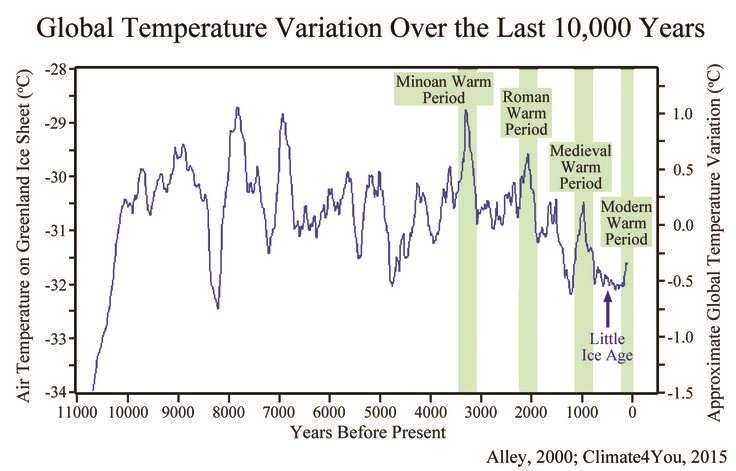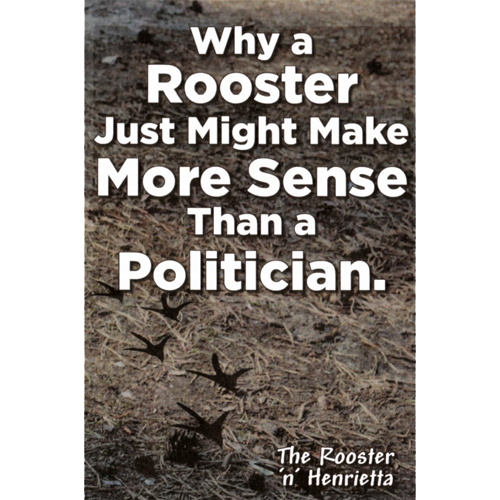The Climate Change Belief System by Roger Graves
- 2021-01-01
- By admin
- Posted in Latest News
A couple of hundred years ago and more, the commonly accepted cure for a multitude of ailments was bloodletting. The doctor opened one of your veins and drained a pint or so of blood out of you. If you at the time had the temerity to suggest that bloodletting had no therapeutic value whatsoever, and indeed was more likely to be harmful than not, you would have been dismissed as an ignoramus or a dangerous crank. Medical science, such as it was at that time, firmly supported the practice of bloodletting.
Bloodletting was based on a belief system about the causes of disease. We now know that bloodletting is quite useless as a medical procedure, yet its practice persisted for hundreds of years. Like most belief systems, this one was self-perpetuating. Doctors performed bloodletting, so everyone assumed it must be effective, so medical students were taught it and later practiced it in turn. It was only when scientists such as Louis Pasteur discovered the germ theory of disease that its practice went into abeyance.
Belief systems don’t have to be verifiable. As far as I know, no doctor in days gone by ever tried comparing two groups of patients, ones who were bled and ones who were not. It was just assumed that bloodletting worked, so there was no need to put it to the test.
Today we have another belief system, called climate change. Almost every politician and journalist assures us that climate change is real and we must all make sacrifices to combat it. Most of the rest of us assume they must know what they are talking about, so there is a great clamour for the government to do something about it. But like bloodletting, the fact that almost everyone believes it to be true doesn’t necessarily make it so. Let’s have a look at some facts.
The linchpin of climate change theory is that carbon dioxide (CO2), which is produced by burning fossil fuels such as oil and gas, is a dangerous pollutant which is causing the world to heat up. If average temperatures increase by more than about 2 degrees Celsius, the world will become virtually uninhabitable.
First, CO2 is not, never was, and never can be, a pollutant. It is the basis of life on Earth. Growing plants need water, sunlight and CO2. Take away any one of these and plants will not grow. Without CO2 our planet would be a lifeless ball of rock and water.
Second, we live in a CO2-impoverished atmosphere. We don’t have enough CO2, not by a long shot. If you don’t believe me, just ask any commercial greenhouse operator.
Commercial greenhouses are run at two to three times atmospheric CO2 levels, because plants grow stronger and faster, and with greater yields, under such conditions.
Third, we know how much a given increase in CO2 will cause the world to heat up, and it is quite a small amount. Computer-based climate models which predict massive heating do so by postulating other effects resulting from CO2-induced warming, none of which have ever been proven to occur in the real world.
Fourth, the Earth has been a lot warmer in the recent past than it is now, and in every case such periods have encompassed a flowering of civilization. The warmer the better, apparently. The Medieval Warm Period and the Roman Warm Period before it were both historical eras in which great civilizations flourished, while the Minoan Warm Period a little over three thousand years ago saw the birth of the early Mediterranean civilizations. In contrast, wars, starvation and disease are more likely in cold periods such as the Little Ice Age.

Fifth, when most people talk about climate change, what they are really referring to is weather, not climate. Weather is the day to day and year to year variation in environmental conditions, whereas climate is the long-term average of those conditions over many years. Climate is what we expect, weather is what we get. Describing the 2019 flooding in Eastern Ontario as a result of climate change reveals a complete misunderstanding of the nature of climate. There has been flooding in the past, there will be flooding in the future. Some years there is flooding, other years there is not. Merely because something is unpleasant does not make it climate change.
So why is everyone so frightened of climate change? The answer appears to be that it is a belief system that has been skilfully engineered to take hold of people’s minds, and is telling them that unless we stop using fossil fuels the world will come to an end in various unpleasant ways. But as we can see, this is complete nonsense. How did we get here?
To begin with, how does a belief system start? The three most important things in getting a belief system going are repetition, repetition and repetition. If all you hear, all day and every day, is how climate change is threatening us, then sooner or later most people will believe what they are told because no other viewpoints are ever put forward.
The climate change belief system is reinforced by blaming climate change every time something unpleasant happens. No evidence is required, just a blanket assurance that it’s climate change. Floods, tornados, plagues of frogs – must be due to climate change! The rule is quite simple: if it’s nice it’s natural variation, if it’s nasty it’s climate change.
And as always, cui bono? Who benefits by the climate change belief system? Let’s follow the money.
To begin with, there is the green energy industry. Since the beginning of this century, more than three trillion dollars has been spent worldwide on green energy, mainly wind and solar. Furthermore, if calls to replace all our existing power generation with wind and solar are acted upon, we are looking at ten to a hundred times this amount. We’re talking serious money here. Ally yourself to expenditures of this magnitude and you can be rich beyond dreams of avarice. Now ask yourself how much of this tsunami of money would ever be spent if the concept of climate change did not exist, and you can see one very good reason for encouraging the climate change belief system.
Next there are the politicians who inform us with great earnestness that the world is doomed – doomed! – unless we mend our ways, and only by electing them can policies be put in place to save the world. This does make a rather effective campaign slogan: vote for us, or the world is doomed. Encouraging a fervent belief in human-caused climate change is their path to power.
Then there are the academics and civil servants for whom research into climate change and administration of various climate change-related measures have enabled them to create little, and sometimes not so little, empires. For them, climate change means a comfortable sinecure with generous funding and access to lots of perks, such as travel to international conferences. Disavowing climate change would mean being cast out into the cold.
Last but not least are the environmental non-governmental organizations (ENGOs) for whom doom-laden scenarios are central to their money-raising efforts. For many of them, wholeheartedly embracing the climate change belief system has converted them into multi-billion dollar organizations with the ear of governments around the world.
Climate change, whatever its merits, has been sold to us in a very skilful manner. It tugs at our heartstrings with images of the imminent demise of cuddly little animals with big brown eyes, while all the time representing climate related policies such as wind power as opportunities rather than burdens. (Remember all those ‘green’ jobs which never seem to materialise?)
However, climate change comes with a good cop/bad cop routine. The bad cop part is that if you disagree with it in any way you will be made to feel as if you were tramping through a church in muddy boots. Terms such as ‘denier’ will be hurled at you, and you will be told that you are jeopardizing your grandchildren’s future. And yet, one has to wonder, if climate change and all its desolate scenarios are so self-evident, why the need to sanction dissenters in this way? Could it be that the high priests of climate change are afraid of dissent?
Fear of dissent is usually a sign that the belief system is on shaky grounds. Just remember this the next time you are asked to pay higher taxes because of climate change.
Search:
Categories
Archives
- April 2024
- January 2024
- December 2023
- November 2023
- August 2023
- July 2023
- June 2023
- May 2023
- April 2023
- March 2023
- February 2023
- January 2023
- December 2022
- November 2022
- October 2022
- September 2022
- August 2022
- July 2022
- June 2022
- May 2022
- April 2022
- March 2022
- February 2022
- January 2022
- December 2021
- November 2021
- October 2021
- September 2021
- August 2021
- July 2021
- June 2021
- May 2021
- April 2021
- March 2021
- February 2021
- January 2021
- December 2020
- November 2020
- October 2020
- September 2020
- August 2020
- July 2020
- June 2020
- May 2020
- April 2020
- March 2020
- February 2020
- January 2020
- December 2019
- November 2019
- October 2019
- September 2019
- August 2019
- July 2019
- June 2019
- May 2019
- April 2019
- March 2019
- February 2019
- January 2019
- December 2018
- November 2018
- October 2018
- September 2018
- August 2018
- July 2018
- June 2018
- May 2018
- April 2018
- March 2018
- February 2018
- January 2018
- December 2017
- November 2017
- October 2017
- September 2017
- August 2017
- July 2017
- June 2017
- May 2017
- April 2017
- March 2017
- February 2017
- January 2017
- December 2016
- November 2016
- October 2016
- September 2016
- August 2016
- July 2016
- June 2016
- May 2016
- April 2016
- March 2016
- February 2016
- January 2016
- December 2015
- November 2015
- October 2015
- September 2015
- August 2015
- July 2015
- June 2015
- May 2015
- April 2015
- March 2015
- February 2015
- January 2015
- December 2014
- November 2014
- October 2014
- September 2014
- August 2014
- July 2014
- June 2014
- May 2014
- April 2014
- March 2014
- February 2014
- January 2014
- December 2013
- November 2013
- October 2013
- September 2013
- August 2013
- June 2013
- April 2013
- October 2012
- May 2012
- September 2011



